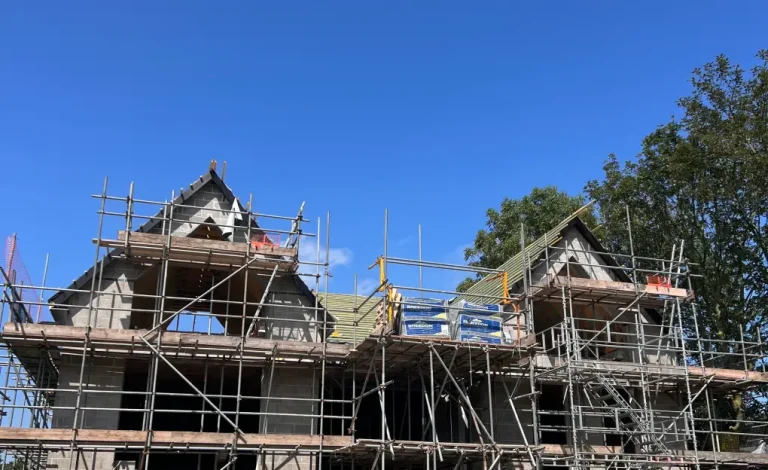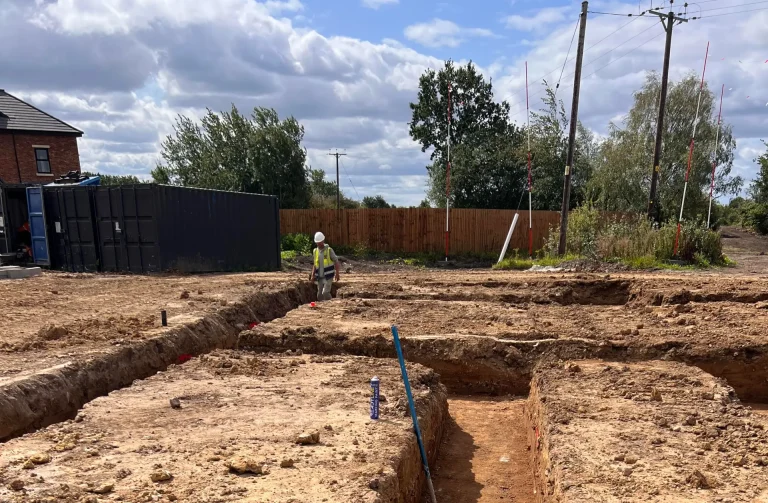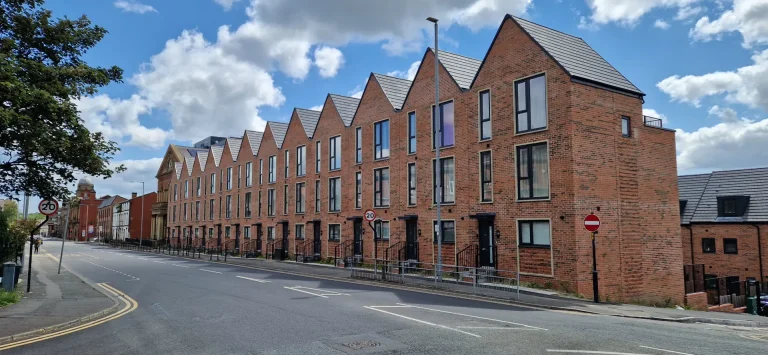Social housing is among the most important categories of housing in the UK that offers homes for rent or purchase to the public that cannot easily acquire housing on the free market. This article aims to explore the history, the current state and the future of social housing, and the construction industry’s contribution towards the delivery of social housing as a significant component for the UK economy.
Social Housing History and Changes in Government Policies
The history of social housing in the UK is the history of continuous development and the changes that take place as a result of the society’s requirements and politics. After the Second World War there was a severe shortage of housing as war had left many areas devastated. The government countered with a massive council house building program to house the population adequately and affordably. This was highly effective and by the 1960s, council housing formed a quarter of the total housing in the country.

The next major change in social housing came with the Government’s introduction of the Housing Act of 1974. The Act focussed on the need to increase the number of social housing properties within the UK which involved a significant injection of public money from the Government. Housing Associations (which are non profit making organisations) with the help of construction companies and Local Authorities, were able to address the social housing shortage.
Fourteen years after the Social Housing shakeup in 1974, the Housing Act of 1988 was introduced. The new Act was designed to help local councils pass on their responsibilities of managing and maintaining their stock of homes for housing associations. It was also intended to increase efficiency and management, and reduced the direct involvement that local councils had within social housing.
Current Governments Social Housing Policy
Since 2010 there has been a dramatic reduction in funding for affordable housing from the Government. This started the scarcity in availability for rented social housing homes and new affordable homes being built. The reduction in supply and rising house prices has contributed to the housing crisis debate throughout England.
The Government, to rectify the social housing shortage introduced the Social Housing (Regulation) Act 2023 which officially started in April 2024. The latest act enhances the authority of the Regulator of Social Housing (RSH) ensuring that landlords meet the consumers’ needs. Some of the standards that were included were:
- Quality standards
- Safety Standards
- Clarity
- Ability to address the needs of the tenant.
Today it is compulsory for social housing landlords to offer their tenants a questionnaire called Tenant Satisfaction Measures that evaluates the landlords’ performance.
Building a Sustainable Future
Social housing construction companies play a major role in providing solutions for the Government’s social housing plan. The Government published the Construction Playbook recently which is designed to encourage the consolidation of public works projects to have more defined chains and sustainable strategies. By enhancing the relationships between construction companies and their clients, a clear vision and road map as well as better planning will hopefully be achieved.
Sustainability within the construction industry is another goal that has been widely introduced. Modern Methods of Construction (MMC) is just one innovative concept that has the potential to make a big contribution to the net-zero carbon target. Modern methods of construction focuses on sustainability and energy efficiency and some of the methods offer Passivhaus standards.
Recent studies have shown that the construction of social housing can have a positive impact on the economy. The immediate positives are increased employment opportunities within the construction of new social housing estates and other areas of business that are associated with it. Over a longer period, a robust social housing sector brings benefits such as:

Increased Employment
Social housing creates stability for people which results in an increase in employment prospects and therefore an increase in tax revenues for the government.
Reduced Benefit Costs
There is a reduced demand for benefits when a stable home is provided which equates to less spending by the Government.
Improved Healthcare
A well managed and reliable social housing scheme will help improve the health of the public as a whole and also reduce the pressure from within the National Health Service.
Reduced Homelessness Costs
Providing available social housing access as temporary accommodation helps reduce the pressure on local authorities. It also helps reduce the spend on additional resources and support services.
Lower Crime Rates
A stable community with a safe environment reduces the need for members of the public to engage in criminal activities. This reduces crime rates and helps reduce spending within the criminal justice system.
Improved Life Chances for Children
Safe homes improves the learning capabilities of children, benefits their education and future careers.
Social Housing in Manchester – Forshaw Construction
Forshaw Construction understands that the community is at the heart of every social housing development they undertake. Working with community based groups and ensuring that there are local employment opportunities is central to Forshaw Constructions operations.

Forshaws Crumpsall Road project, in North Manchester is an example of how the construction industry can create a better future for social housing. Crumpsall Road is a development of 35 new social houses that have eco-friendly features which are aimed at minimising the environmental impact and to provide a greener future. In line with Forshaw’s commitment, the newly built social houses will be energy efficient, sustainable and comfortable.
Our commitment to social housing extends beyond simply building structures. We work closely with housing associations to create high-quality, energy-efficient homes that promote a sense of belonging and well-being. These developments become more than just places to live; they become vibrant spaces where families can grow and communities can flourish.
Summary
Today, social housing is about creating opportunities, safety, community and developing a stable society. Forshaw Constructions Crumpsall Road project demonstrates how communication between housing associations, construction companies, and local communities can deliver social housing solutions which are not just sustainable but also empowers its residents and contributes to a brighter future for all.
Contact a member of the Forshaw Construction team to discuss your next development.



